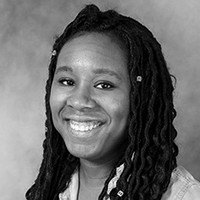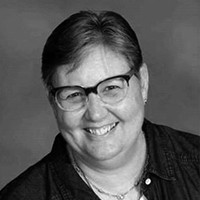The global pandemic has forced necessary adjustments to nearly every profession, and the professions Continued serves have not been exempt.
Here are some of the lessons learned by two licensed clinical social workers and Continued presenters. See how they’ve made adjustments to their practices and how they are providing the best possible care in these unprecedented times.
Our Continued conversations series highlights the experts behind our content. Meet the presenters, contributors, and guest editors who make a difference in their fields and inspire our learners to do the same.
 Tiffany Hall, MS, LMFT
Tiffany Hall, MS, LMFT
Tiffany Hall is a licensed marriage and family therapist practicing in and around Philadelphia, Pennsylvania. Hall has nearly 10 years of experience treating individuals, couples, and families. She is also an Eye Movement Desensitization and Reprocessing-trained therapist and specializes in treating trauma and its impact on relationships.
How has your profession changed during the pandemic?
Being a psychotherapist is my calling, but doing this work during the pandemic has been the most challenging time in my career. Sometimes I didn't know what to tell my clients; often I was just as stressed as they were.
While this is certainly a turbulent time, do you have any positive takeaways?
I really have appreciated the slower pace of it all. Being able to work remotely has allowed me to spend more time with my son.
How can we provide the best possible care during this time?
Self-care, self-care, self-care! We cannot serve people effectively if we're unwell.
View Hall’s courses on Continued Social Work
“We cannot serve people effectively if we're unwell.”
 Lisa Zoll, MSW, LCSW
Lisa Zoll, MSW, LCSW
Lisa Zoll is a licensed clinical social worker and has worked for 17 years in the field in various capacities. She previously taught in the Master of Social Work program at Temple University, Harrisburg, and has served as a clinical psychiatric specialist at the Penn State Hershey Medical Center Department of Psychiatry adult partial hospitalization program and psychiatric outpatient clinic. In 2018, Lisa founded Grief Relief, LLC, where she specializes in helping clients challenged by loss and grief.
How has your profession changed during the pandemic?
The biggest change to the profession seems to be the expansion of telehealth services to our clients as well as the expansion of insurance coverage for these services.
While this is certainly a turbulent time, do you have any positive takeaways?
The pandemic has caused a significant amount of disorder in the daily structure and routines of our lives. Many have been challenged to reorder their lives in creative ways and have had to alter their approach from how they do their jobs to how they stay connected with their social support systems. I think we are learning how important those connections are and are less likely to take them for granted. We have needed to learn where to put the limited amount of energy we have into what is important to us.
How can we provide the best possible care during this time?
At the risk of sounding cliché, the best way to take care of others is to take care of ourselves. Joy seems like a pretty lofty goal as we continue to move through this pandemic, but I have come up with a concept that may be more realistic: EnJOYment. I have been asking my clients to think about things that bring them enJOYment. For me, that has meant finding good food, good books, and good friends with whom to commiserate. Also, getting a change of scenery when possible has been helpful.
View Zoll’s courses on Continued Social Work
“The best way to take care of others is to take care of ourselves.”